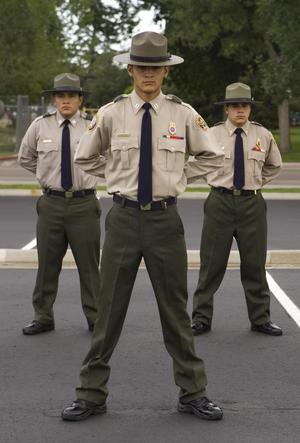Former U.S. Border Patrol agent Bryan Gonzalez, featured in a story by The New York Times on December 2, is a reminder that dissent does exist with U.S. immigration and drug enforcement agents. In Gonzalez’s case he made the mistake of expressing his personal opinion on drug enforcement to a colleague near the U.S.-Mexico boundary in southern New Mexico. Gonzalez suggested that legalizing drugs might help curb the unprecedented level of violence on the Mexican side. After his colleague reported his comments to superior officers, and the ensuing investigation, Gonzalez's termination letter read that he held “personal views that were contrary to core characteristics of Border Patrol Agents, which are patriotism, dedication and spirit de corps.”
While on one hand this incident offers a glimpse into the growing dissent among the rank and file of drug and immigration enforcement agents, it also reveals the fact that "personal views" do matter in Customs and Border Protection (CBP—the parent agency of the Border Patrol), and the Department of Homeland Security (DHS). For this department of 230,000 employees and growing, Gonzalez's type of views will not be tolerated.
The most organized form of this dissent around drug issues among police, Border Patrol, judges, and prosecutors is Law Enforcement Against Prohibition (LEAP), which is supporting Gonzalez in a lawsuit he filed against the Border Patrol. This group of 30,000 members contends that the War on Drugs is a costly and violent failure.
LEAP representative and former Border Patrol agent Terry Nelson (video of Nelson and LEAP below) told Between the Lines in an interview that “we spend about $70 billion a year prosecuting the drug war – people put in jail, the $30,00 a year to keep a person in jail, the court costs, the police costs, the overtime costs," which is very profitable to certain sectors. Terry says that LEAP’s position is to trade drug enforcement strategy from one of narcotic interdiction and prohibition to legalization, and that by being able to regulate and control distribution they "would take the criminal drug gangs and cartels out of the matrix."
It is not only drug enforcement, some have also spoken out about immigration enforcement and its impacts on unauthorized border-crossers, including death.
But rather than debate, these sorts of opinion are against the Border Patrol's core values of “patriotism, dedication, and spirit de corps." The Gonzalez case reaffirms that CBP and DHS view their agents as cogs in a multi-fanged drug interdiction, border enforcement, and deportation machine. It’s true that the policy that CBP and DHS abides by comes from Washington, and individual agents would not be able to change this from within. But at the same time the message has been sent, and anything outside the lines of CBP's mission and core values will not be tolerated if you want to keep your job. From the CBP website:


